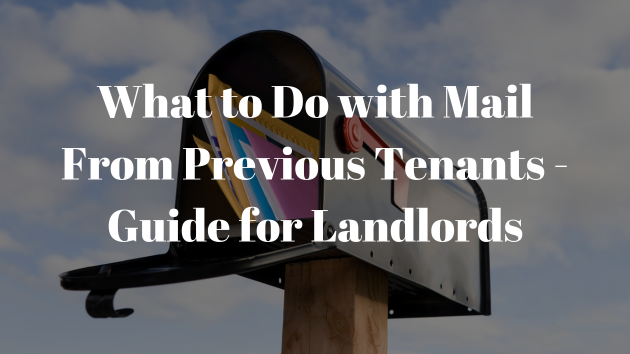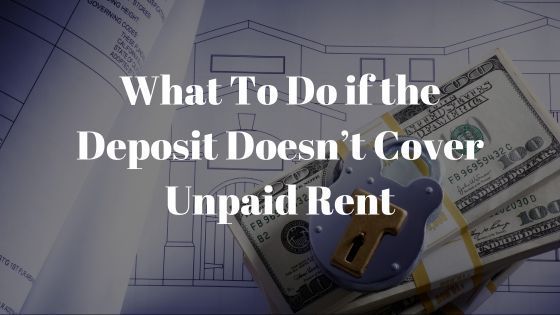
Overview of Landlord-Tenant Laws in North Carolina
DISCLAIMER: The information provided by Dawson Property Management in this blog article is for general informational purposes only. All information on the Site is provided in good faith, however we make no representation or warranty of any kind, express or implied, regarding the accuracy, adequacy, validity, reliability, availability or completeness of any information on the Site. If you need legal advice, you will need to call an attorney.
Per North Carolina General Statutes, Chapter 42, Landlord and Tenant governs every landlord tenant relationship in the state of North Carolina (NC). This set of statutes dictates what both the landlord and their tenant need to do. North Carolina's rental laws are an important part of protecting the rental, preventing domestic violence, saving money on legal costs and more.
A lease agreement in the state of North Carolina automatically terminates if either party fails to perform their responsibilities. Violations of a rental or lease agreement often have legal and financial repercussions for a landlord and their tenants, with the potential of winding up in small claims court in unfortunate circumstances. This, however, can be prevented if both parties understand the basics of North Carolina landlord tenant laws.
Here’s an overview of the North Carolina landlord tenant laws.
Landlord Rights & Responsibilities in North Carolina
The following are important legal responsibilities of North Carolina landlords:
1. Prepare a lease or rental agreement
Every North Carolina lease agreement guides the legal landlord tenant relationship. According to North Carolina landlord tenant laws, a landlord must include all crucial business details in their lease agreements. For example, a landlord must include the amount of rent, pet and security deposits, and how long the tenant can occupy the rental unit.
2. Provide habitable housing
It’s the legal responsibility of a North Carolina landlords to keep their rental unit habitable. Failure to do so allows the tenant to pursue various options such as moving out. A renter has a legal right to live in well-maintained rental properties where they are free from domestic violence.
3. Adhere to North Carolina's security deposit limits and return rules
One of the biggest sources of legal dispute between a North Carolina tenant and their landlord is the security deposit, especially deductions. N.C. General Statute 42-51 covers the handling of security deposits. This includes security deposit collection and returns.
4. Follow North Carolina rental rules
All North Carolina landlords needs to follow the rules. North Carolina landlord-tenant law regulates several issues, such as the amount of notice landlords must give a tenant who hasn't paid rent. Lease agreements must adhere to North Carolina landlord tenant laws.
5. Make legally required lead-based paint disclosures
North Carolina landlords may face hefty financial penalties for failure to comply with required federal disclosures regarding lead-based paint on the premises.
6. Follow exact procedures for terminating a tenancy or evicting a tenant
7. Not to retaliate against a tenant who exercises a legal right
Per North Carolina law, it’s illegal for a landlord to retaliate against a tenant who wishes to exercise their legal right.
Renters Rights & Responsibilities in North Carolina
Under North Carolina laws, it’s every tenant’s right to:
- Not negligently or deliberately damage, deface, destroy, or remove any part of the rented premises or withhold rent.
- Keep the premises clean.
- Dispose of waste in a clean and safe manner.
- Comply with North Carolina building and housing codes.
- Notify the landlord of any repairs.
North Carolina Required Landlord Disclosures
Landlords must disclose the following information to each North Carolina tenant in their rental agreement:
- Late fees. If a tenant fails to pay rent, a late fee may be imposed. For weekly payments, the maximum late fee is four dollars or five percent of the weekly amount . For monthly payments, the maximum late fee is fifteen dollars or five percent of the monthly rent. In North Carolina, landlords can only charge late fees if the rental payment is late five days or more. Lanlords should be sure to include late payment fee information in their rental agreement.
- Domestic violence. So long as a 30 days’ written notice is provided, victims can avail of early termination.
- Marijuana use policy. North Caolina law permits the use of medicinal marijuana. However, it’s illegal to cultivate it.
- Dishonored payment fees. Each dishonored payment attracts a maximum fee of twenty-five dollars
- Shared utility arrangements.
- Mold disclosure. The landlord is required to disclose any structural damage in their rental property to their North Carolina tenant, including but not limited to smoke, fire, water, mold, and insect damage.
North Carolina Tenant’s Right to Fair Housing
Both the North Carolina Fair Housing Act and The Federal Fair Housing Act cover every tenant in the state of North Carolina and are aimed at eliminating housing discrimination and domestic violence. The two laws prohibit landlords from discriminating against renters.
Under the Fair Housing Act, it would be illegal to do any of the following:
- Use discriminatory statements in an advertisement.
- Alter agreement terms or deposit amounts based on protected characteristics.
- Refuse to sell or rent to someone because they belong to a certain class.
- Falsely state that a rental unit isn’t available after discovering that a member belongs to a certain class.
- Decline to make reasonable accommodations to disabled persons which constitutes housing discrimination.
It would be termed unfair if the landlord does the following things because of a tenant’s religion, sex, color, national origin, familial status, disability, or race.
North Carolina Rental Agreements Laws
- The rental amount, when it’s to be paid and how paying rent will work. For example, a landlord may have a tenant pay one months rent or two weeks rent at a time depending on the landlords preference and the terms of their rental agreement.
- The term of the tenancy. The term of the tenancy can either be week-to-week, month-to-month or fixed-term.
- Limits on occupancy. A lease agreement specifies who can live in the rental. Any other person not included in the agreement would be considered subletting.
- Names of all renters.
- Pet and security deposits and fees, and how each deposit will be handled.
- Restrictions on tenant illegal activity.
- Landlord’s entry to the rental unit.
- Repair policy and regulations.
- The basis for lease termination and eviction.
Security Deposit Limit and Return
NC General Statute 42-51 covers the handling of a renter's security deposit. Per North Carolina landlord tenant laws tenant's security deposit helps cover costs associated with nonpayment of rent and repairs that are beyond normal wear and tear. It's important to handle security deposits properly to avoid winding up in small claims court which can mean dealing with court costs and legal representation related to security deposit issues. Small claims court deals with disputes of value up to $10,000.
- The security deposits cannot exceed two weeks rent for week-to-week written rental agreements.
- The security deposits cannot exceed one and a half month for a month-to-month lease agreement.
- For a lease agreement exceeding one month, the security deposit cannot exceed two month's rent amount.
Non-refundable pet deposits are allowed. However, NC General Statute 42-53 specifies that the amount asked must be within reason. There’s no North Carolina statute requiring landlords to pay interest on the tenant's security deposit.
North Carolina Termination and Eviction Process Rules
The termination of a lease agreement is specified by North Carolina landlord tenant laws. North Carolina’s eviction process states that a landlord may end a tenancy as a result of a tenant’s violation of a lease term. For example, a landlord could evict a tenant if they withhold rent without reason. In so doing, the landlord must follow the due legal process, provide written notice, and may need to take the eviction to small claims court. Otherwise, the eviction process may fail.
Per North Carolina landlord tenant laws Landlords can evict a tenant for legitimate reasons such as:
- Unpaid rent. This is the most common reason for evicting a tenant. However, evictions based on this reason can be overlooked if the landlord fails to provide habitable dwelling.
- Illegal activity on the rental property.
- Property damage beyond reasonable repairs, or the tenant refusing to make reasonable repairs.
- Lease violation. For example, unapproved subletting, unauthorized pets, and unapproved occupants in the rental property.
- Expiration of lease agreement.
North Carolina Law for Landlords and Tenants
Before filing an eviction lawsuit, landlords need to serve their tenants with an eviction notice. The landlord must have a legal reason to evict their tenant. For example, the tenant’s failure to make rental payment, or violation(s) of the lease.
The notice must state when the tenant should vacate the premises. It should also be personally served to the tenant. In North Carolina, the notice served is dependent on the reason for eviction:
- Lease Violations: The eviction notice a landlord must give their tenants depends on the lease terms. If the lease contains a provision to remedy the violation, the tenant must act in compliance or face an eviction. On the other hand, if the lease doesn’t contain such a provision, the landlord can file for an eviction as soon as they learn of the violation.
- Holdover Tenant: This notice is served to tenants who refuse to move out at the end of their term. The notice is dependent on the lease’s length. A one month’s notice should be served for a year-to-year agreement. Seven days’ notice should be served for a month-to-month agreements. And finally, two days’ notice should be served for a week-to-week agreement.
- Non-payment of Rent: The landlord needs to serve the tenant a 10 days’ notice. If the tenant fails to pay within the 10 days, it allows the landlord to file an eviction lawsuit against them.If a tenant chooses to withhold rent, they are at risk of being evicted.
- Criminal Activities: Here, the landlord can serve an “Unconditional Quit Notice” to their tenants. This means that the tenant doesn’t have any other option but to leave. The landlord can file for a lawsuit immediately.
North Carolina Tenant Defenses
North Carolina law provides protection for tenants facing an eviction. The following are the most common defenses and counterclaims tenants use to win eviction cases in NC:
- The landlord does not serve the eviction notice properly
- The allegations are false
- If, for criminal activity, the tenant had no knowledge of the activity. Or, made reasonable efforts to prevent it from happening.
- The eviction is based on discrimination
- The eviction is in retaliation against a tenant exercising their rights under the agreement
- By accepting rent, the landlord waived the eviction
- The notice was irrelevant
- The lease violations aren’t significant enough to merit an eviction
North Carolina Late Fees and Other Rent Rules
Rent-related issues are regulated by state law. In North Carolina, the lease stipulates key rent rules. Some of these rules include:
- The cost of rental payments
- When to pay
- Where to pay
- How to pay
- The consequences of late payment
- The amount of extra fee should a rent check bounce
- The amount of notice landlords must provide to increase rent
Landlords may charge a late fee if tenants don’t pay rent when it’s due. A late fee, under North Carolina rental laws, can’t be imposed until the rent is five days late. The late fee can’t also be higher than five percent of the rental payment.
North Carolina Notice and Entry Rules
Landlords in North Carolina don’t have to notify tenants of entry prior to entering the rental property of North Carolina tenants. Thus, a landlord may enter the homes of North Carolina tenants for any of the following reasons:
- Showing the unit to any prospective tenant
- Emergencies
- Non-emergency maintenance and repairs
Although it isn’t a legal requirement in North Carolina state laws, most landlords still provide a 24 hours’ notice.
The Bottom Line: North Carolina Landlord Tenant Law
This article can guide both landlords and tenants in North Carolina, to help them deal with many legal questions and problems without requiring a lawyer. That being said, this article is meant to be informational and not a substitute for professional legal advice.
If you're a North Carolina landlord and you require more advice on landlord tenant laws in North Carolina, how to evict a tenant, security deposit deduction laws, or any other North Carolina laws, visit our home page and our professional property managers will be delighted to help.

Dawson Property Management











